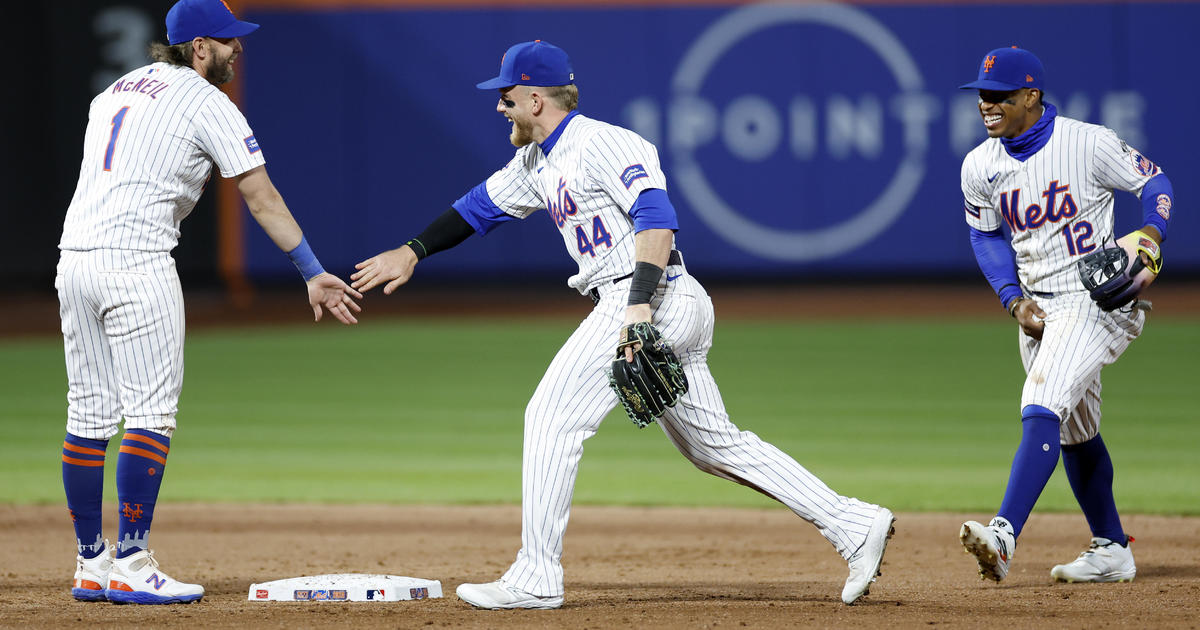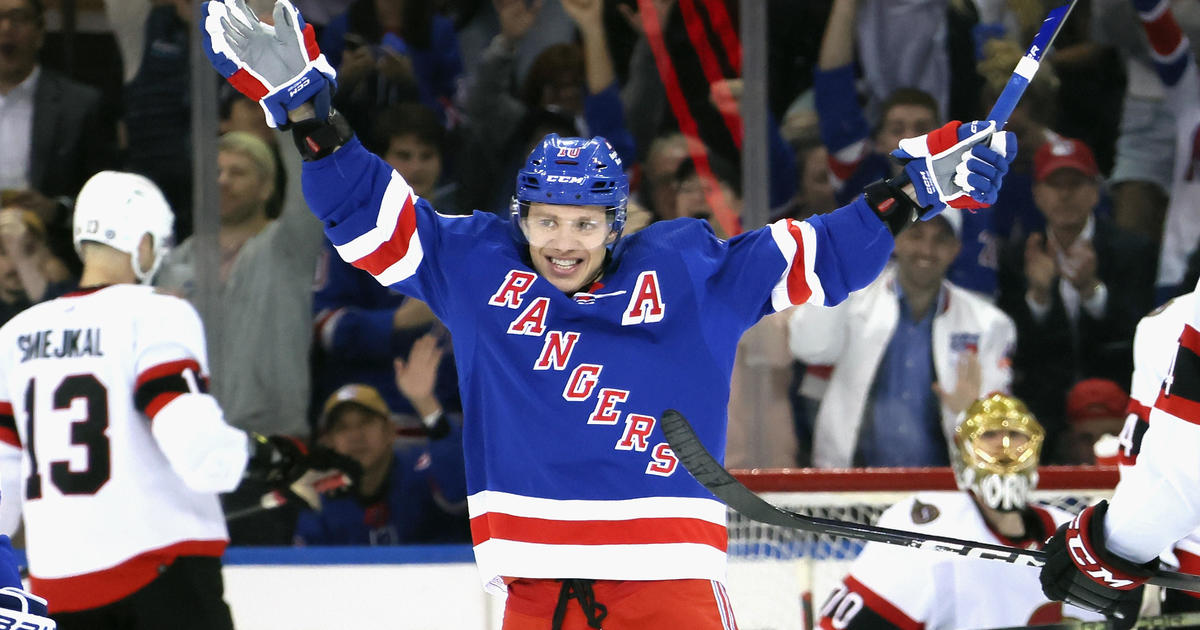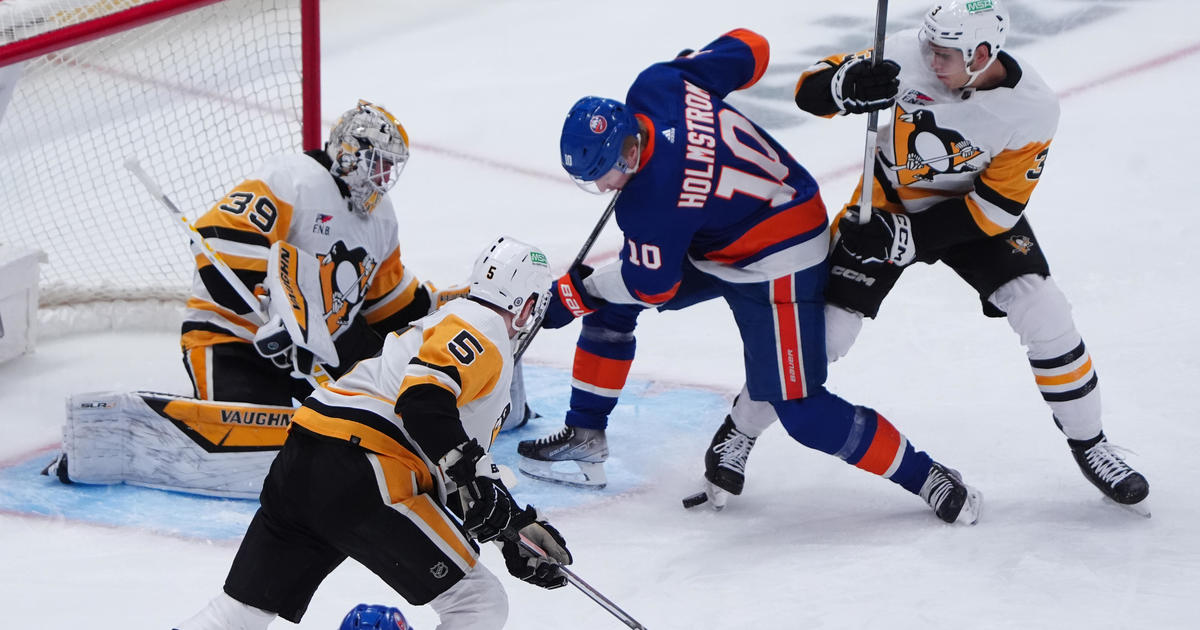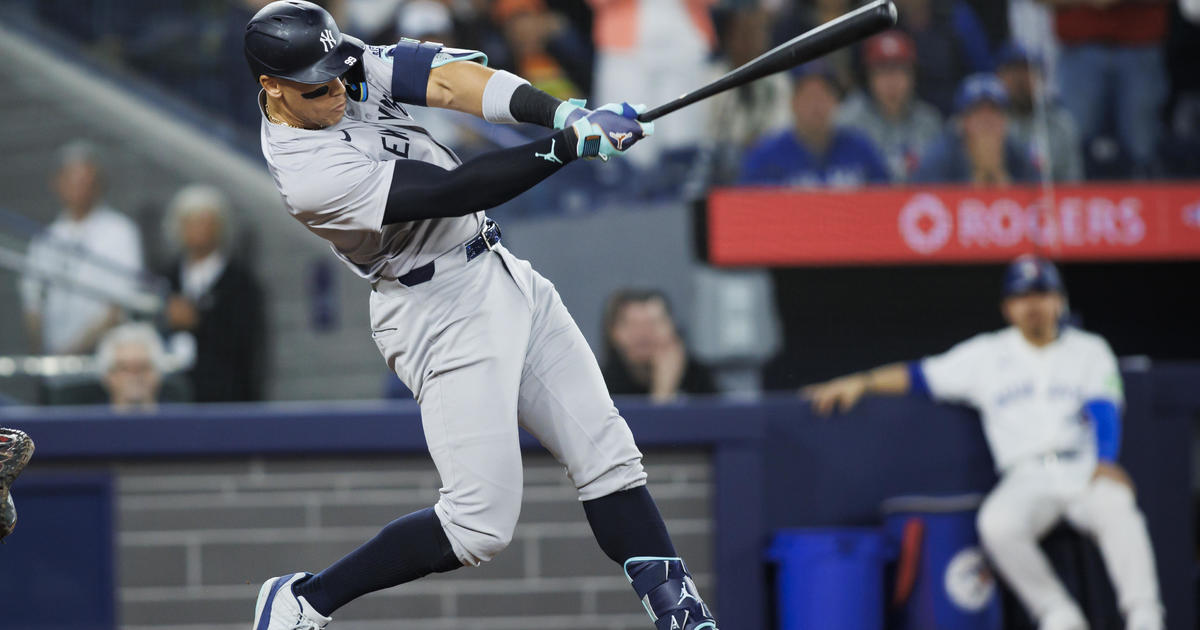Rangers' Sean Avery Backs Same-Sex Marriage, Sparks Debate
JIM LITKE, AP Sports Columnist
NEW YORK (WFAN/AP) -- Most pro athletes would just as soon try to catch a puck with their teeth as speak out about a societal issue that risks forcing fans to really choose sides. That's just as true today, when a worldwide audience is just a few keystrokes away, as it was back in the days when newspapers squeezed out the town criers.
There have been exceptions, of course, most notably Muhammad Ali. Instead, it was Michael Jordan, the first superstar of the 24/7 era, as well as its first supersalesman, who set the bar for any athlete with designs on following in his lucrative footsteps. And who didn't want to go there?
In 1990, just as the Jordan brand was gaining traction, supporters of civil rights leader Harvey Gantt sought the NBA star's help in a Senate campaign against Jesse Helms. Jordan declined, refusing to alienate even one potential buyer for his many wares. "Republicans buy sneakers, too," he said.
So no matter what you think about Sean Avery, credit him with at least showing some brass. The Rangers' forward was already dubbed the "most hated man in hockey" because of his low-rent antics and even cheaper shots, but this once he was willing to provoke a reaction that wasn't simply for his own benefit.
Avery appeared in an ad this week for the New Yorkers for Marriage Equality Campaign, run by the nonprofit Human Rights Campaign. He joined a host of celebrities in supporting a push for same-sex marriage in New York state.
"I treat everyone the way that I expect to be treated, and that includes marriage," Avery said in a video.
The story could have ended quietly right there. The appearance of several other, better-known celebrities — former president Bill Clinton, New York Mayor Michael Bloomberg and actors Julianne Moore and Sam Waterston — hardly drew a reaction. Then again, none of them were athletes. Only in the realm of sports could the story get legs.
"Very sad to read Sean Avery's misguided support of same-gender 'marriage.' Legal or not, it will always be wrong," hockey agent Todd Reynolds tweeted in response. The vice president of Ontario-based Uptown Sports Management, which represents about 10 players, followed that up with an interview on TSN radio that he said would serve as his final words on the subject.
"I believe in voicing your opinion and not being part of the silent majority," he said. "If Sean Avery or any other player can comment on one side of the discussion then I work in hockey, I'm in hockey 24/7 why can I not comment on it as well?"
That's his right, of course.
But homosexuality has been one of sports' little morality plays since the ancient Greeks made contests of running, jumping and boxing, then gossiped about the contestants afterward. Long and loud as the discussion has been at times, nobody from any of the big team sports has come out while still playing the game. Not much will change until he does.
Support from guys like Avery is worth noting, but by itself, accomplishes only so much. A handful of athletes have declared their sexuality after their playing days are over with little fanfare as well — former NBA forward John Amaechi, NFL lineman Esera Tuaolo and major leaguer Billy Beane.
Yet even the mild reaction that followed those admissions was a sign of progress. Beane continued to work in baseball and Tuaolo was even enlisted by the NFL to speak to incoming rookie classes about sexual orientation. Contrast that with what happened in 2003, when an online and print rumor campaign prompted Mike Piazza, then playing for the New York Mets, to deny he was gay.
Back then, everybody in the game agreed on this much: That it would take a player as special in every way as Jackie Robinson — who broke the color barrier in major league baseball — to publicly acknowledge his homosexuality.
The bar is much lower now. It's hard to imagine too many owners balking at the idea of an openly gay athlete on their team. Most, in fact, would line up with their wallets out for the opportunity to market him. Similarly, there are more teammates, coaches, sponsors, lawyers, security guards and even fans willing to stand alongside him than Robinson dared dream of.
When that happens, chances are good it will still be the biggest story of the coming decade. Until it does happen, or until enough athletes publicly support the cause the way Avery did, the wait is going to continue.
What's your take on hockey agent Todd Reynolds' response? Sound off below...
(TM and Copyright 2011 CBS Radio Inc. and its relevant subsidiaries. CBS RADIO and EYE Logo TM and Copyright 2011 CBS Broadcasting Inc. Used under license. All Rights Reserved. This material may not be published, broadcast, rewritten, or redistributed. The Associated Press contributed to this report.)



